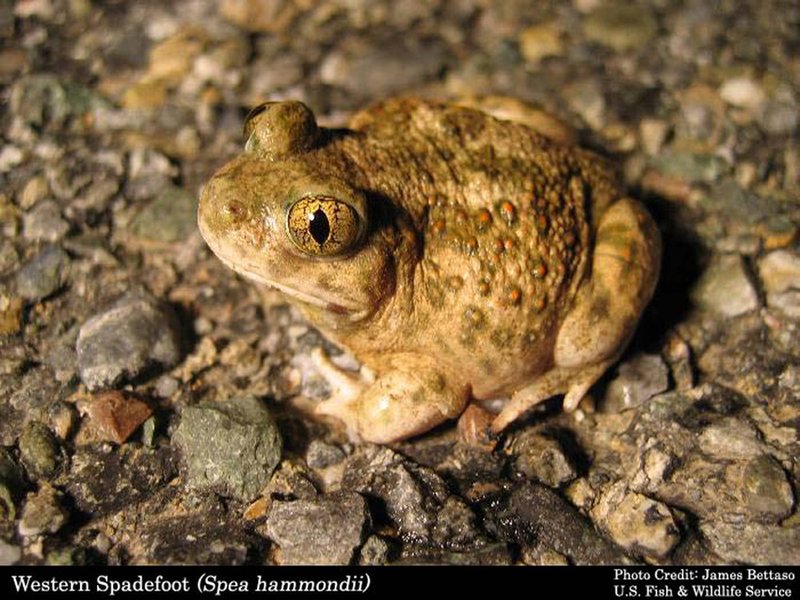For Immediate Release, September 24, 2025
|
Contact: |
Sofia Prado-Irwin, (510) 844-7100 x 548, [email protected] |
Petition Seeks California Protections for Western Spadefoot
SACRAMENTO, Calif.— The Center for Biological Diversity petitioned the California Fish and Game Commission today seeking protections for the western spadefoot under the state Endangered Species Act.
These small, big-eyed amphibians are commonly called toads but are actually a type of frog. They were once common throughout much of California but their populations have been in steep decline for decades, especially in Southern California. Habitat loss, degradation and fragmentation are the species’ biggest threat, but they are also harmed by climate change, pollution and invasive species.
“Western spadefoots need high quality grasslands or shrublands connected to seasonal breeding pools to survive. Their habitat is disappearing by the day, so California officials need to act,” said Sofia Prado-Irwin, Ph.D., a scientist at the Center. “These little cryptic frogs are struggling as their home turf gets eaten up by roads and poorly planned development. The risk of extinction for this species is all too real, but our Fish and Game Commission could help turn the tide.”
Western spadefoots can breed in different types of water bodies, but they are particularly reliant on vernal pools — a unique type of seasonal wetland that supports incredible biodiversity, including multiple plant and animal species found nowhere else on earth. Up to 95% of the state’s historic vernal pools have been lost and those that remain are under significant development pressure.
In 2023 the western spadefoot was proposed for federal protections as a threatened species under the Endangered Species Act but a final decision has not been made. The Trump administration’s ongoing efforts to weaken environmental protections, including the Act, make it unlikely that western spadefoot will receive federal protections in the foreseeable future. Recent changes to weaken the Clean Water Act also make semi-aquatic species like western spadefoot particularly vulnerable.
Today’s petition seeks state protections for the northern and southern populations, which cover the western spadefoot’s entire range in California.

The Center for Biological Diversity is a national, nonprofit conservation organization with more than 1.8 million members and online activists dedicated to the protection of endangered species and wild places.

